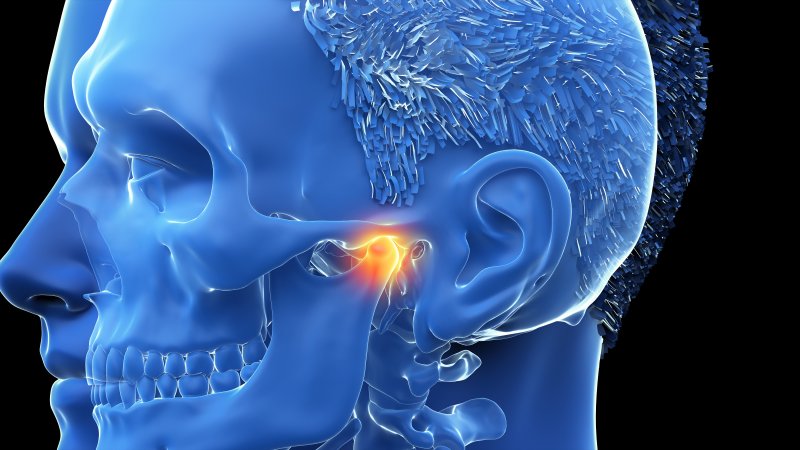
The temporomandibular joint (TMJ) is one of the most complex joints in the entire body, and with that – a lot can go wrong. Because of this, there is tons of misinformation floating around regarding this area. Fortunately, we are here to bring these myths to light. Continue reading to learn about some of the most common myths surrounding TMJ and TMJ dysfunction and why they are incorrect.
Myth #1 – TMJ Is a Health Condition
“TMJ” itself is not a medical condition. In fact, everyone has two TMJs. This acronym stands for the “temporomandibular joint” itself. “TMJ dysfunction” is the health condition in which the TMJ is not functioning as well as it should. The acronym for this issue is TMD.
Myth #2 – TMD Is a Rare Medical Issue
TMD is actually quite widespread. Approximately 35 million people in the United States suffer from disorders related to the TMJ and surrounding muscles. People of any age can suffer from this condition, but women and people between the ages of 20 and 40 tend to be at higher risk of experiencing it.
Myth #3 – TMD Is Always Caused by Accidents and Injuries
Many cases of TMD seem to develop due to injury, like whiplash, a direct blow to the jaw, or a head injury. However, not ALL cases of TMD are caused by accidents like these. It can also stem from malocclusion (when the upper and lower jaws don’t meet) and bruxism (chronic clenching/grinding of the teeth).
Myth #4 – TMD Requires a Surgical Procedure
While surgical intervention could be a solution in some cases as a last resort, most people are able to benefit from alternative treatment options. This could include having small adjustments made to the teeth or wearing a customized oral appliance to bed to keep the jaw in a more relaxed position.
Myth #5 – TMD Is Not Dangerous
While TMD is not typically a life-threatening condition, it can result in some harmful symptoms that can take away from your quality of life. Here are some of the main concerns:
- Difficulty Sleeping: If you are experiencing pain thanks to TMD, this can make it more difficult to get the quality sleep you need to thrive during the day. Lack of sleep can increase your risk of many health conditions, like anxiety, depression, and heart disease.
- Dental Issues: If your TMD is caused by bruxism, or you are grinding your teeth due to TMD, this can eventually lead to enamel erosion, gum recession, and cracked teeth if you don’t have it addressed.
- Poor Nutrition: Difficulty chewing foods can cause one to avoid eating tougher fruits, vegetables, and proteins. This can result in poor nutrition over time.
When you see these myths related to TMJ dysfunction, now you know that they aren’t your best source of information for the condition. If you are struggling with TMD, this is something to bring up with your dentist. By discussing your symptoms and coming to a diagnosis, you can work towards achieving relief.
About the Author
Dr. Brandon Brunner is an experienced dentist and TMJ specialist serving the Wauwatosa community. He earned his dental doctorate from the University of Minnesota School of Dentistry and has completed over 400 hours of continuing education, focusing on TMJ treatment, sleep disorders, cosmetic dentistry, full-mouth rehabilitation, and more. Today, Dr. Brunner is a proud Diplomate in the American Academy of Dental Sleep Medicine as well as a member of the American Dental Association and the Wisconsin Dental Association. To learn more about TMJ treatment or to schedule an appointment, visit his website or call (414) 775-2535.


